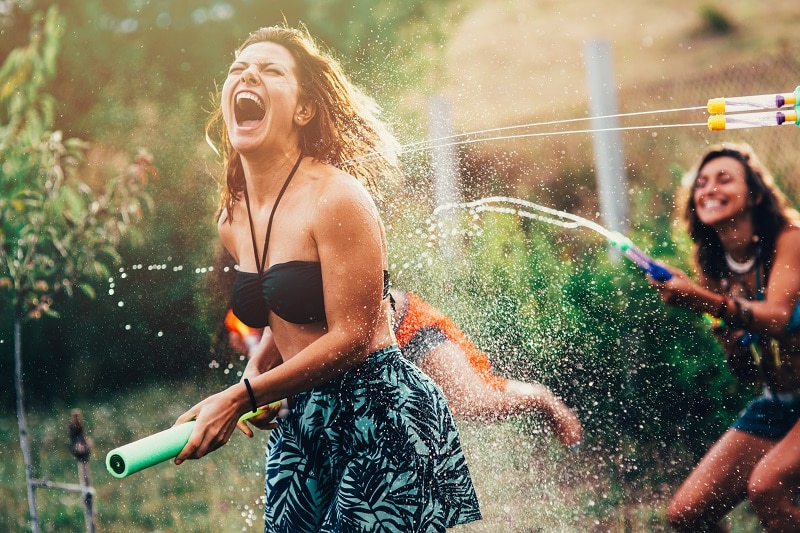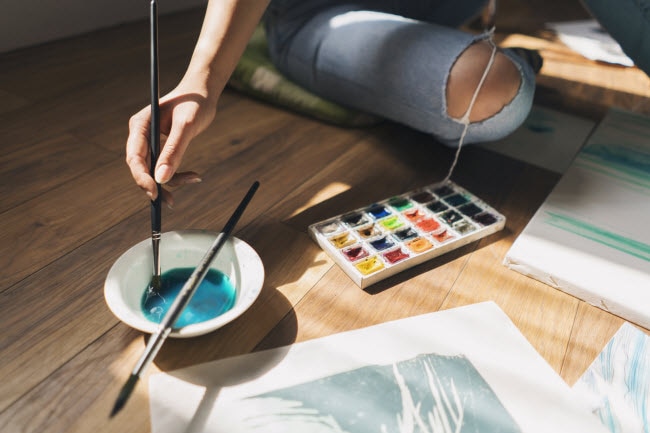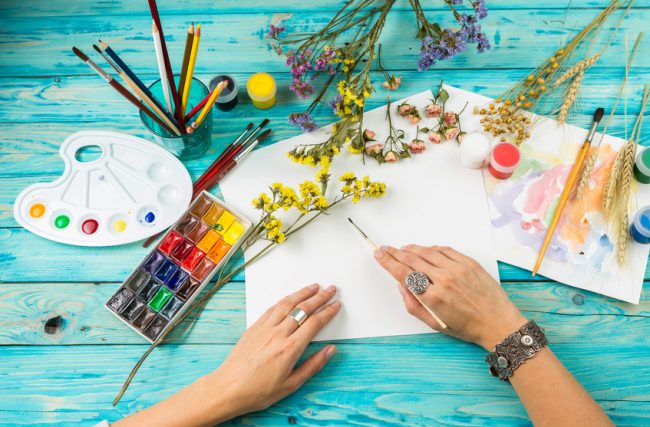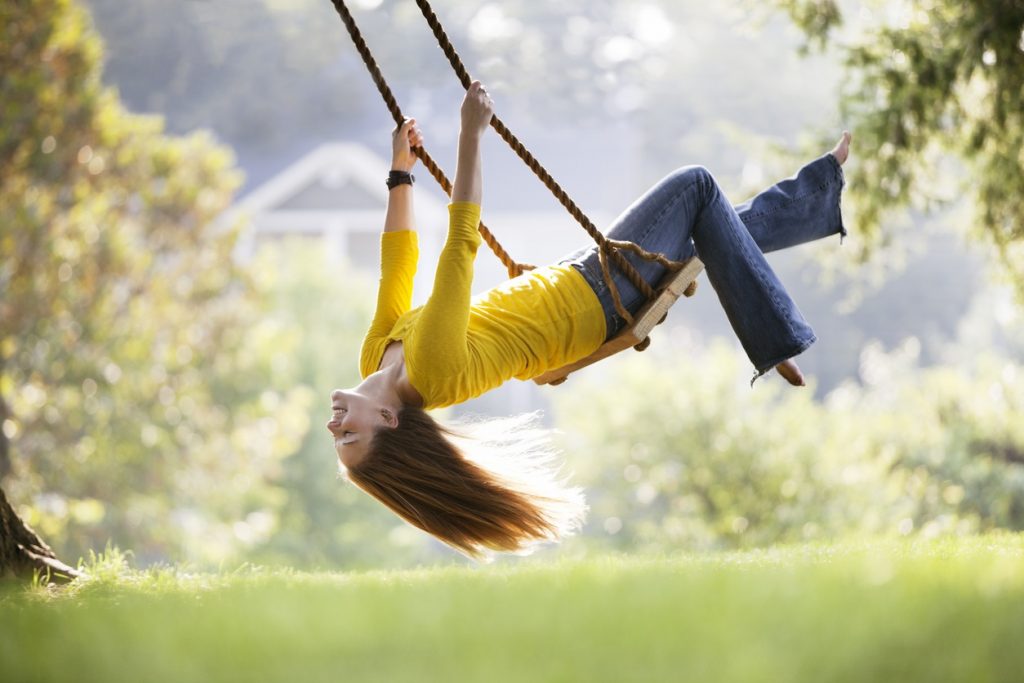I recently started painting. Or, well, I started throwing paint on canvases, sometimes literally. I’m not a trained artist.
This is a good thing. It means I can experiment and be tickled by whatever results, which I am, even when I make muddy messes.
It took four years for me to frolic. That’s because initially I had an outcome in mind. The house I’d moved into had a perfect spot over its fireplace for a huge work of art. I decided I wanted to create it myself. That was the problem. I had a goal. Goals require work.
Ladened with what felt like an obligation, it took two years for me to finally buy canvases and paint and a few months to try one small painting.
Then I stalled. Two years later I restarted because a Michaels coupon came my way when I had some free time.
Now my living room looks like a summer arts-and-crafts camp, with some 20 remaining blank canvases and so many tubes of paint that I’m positively fizzing with excitement every Friday in anticipation of a weekend filled with fun.
Play defined
It’s kind of silly (and sad!) that we have to define play. Play should be self-evident.
If you’re “playing” soccer and your aim is to win, then you’re not playing in the way we’re looking for here; you’re endeavoring, trying to achieve. If you’re kicking around a ball, trying new tricks, having a blast with friends or kids, you’re playing.
But play — and playfulness — can be simpler.
Goof around with your mate? That’s playing. Entertained by strange things and sometimes laugh over them? That’s playing.
“Play” in its truest sense is unguarded, imaginative and pleasurable. It elicits joy. It entices and makes you want to come back for more. Different styles of play apparently exist, but don’t get bogged down in all that. Let instinct be your guide.
4 benefits of play for adults
1. Play makes you feel good
Anything that makes you feel good without harming you or someone else is terrific. That’s what play is and what play gives you. It’s why so many adults engage in activities that are kid-centric at their core: playing video games or board games or card games — if you’re in it for the experience not the outcome. You’ll find adults at amusement parks, water parks and game-filled boardwalks — sans kids but often acting like kids. They laugh and leave feeling lighter.
2. Play relaxes you
“Play a little every day; you’ll enjoy life more and feel less stress.” The prescription is front-and-center on the National Institute for Play’s main web page (if you think you’re too busy or too adult for play, the very fact that this institute exists counters your arguments!).
Play a little and you’ll know this is true, plus study participants report as much. “Findings revealed that playful individuals reported lower levels of perceived stress than their less playful counterparts, and more frequently utilized adaptive, stressor-focused coping strategies and were less likely to employ negative, avoidant and escape-oriented strategies,” says The Playful Advantage: How Playfulness Enhances Coping with Stress.
3. Play leads to new ideas
You’re less likely to see hidden dimensions when you’re on repeat or beholden to a specific outcome, even if your activity can be classified as play (painting, writing, cooking, sewing, building furniture, composing music, etc.).
Let’s say you’re an artist by trade, you sell paintings. If for a week you veer off and paint in ways you never have, without concern over consequence, you’re playing (kind of like I am, and for a beginner everything is novel). You use tools you’ve never used. You squeeze tubes of color you’ve never tried. You bring a foreign texture into the mix.
In that play you’re likely to discover something new — because your approach is new and you’re doing new things.
4. Play stops you from taking yourself too seriously
A saying that’s long stuck with me: “Don’t take life too seriously. You don’t get out of it alive.” Or something like that. It’s a little dark, but also true. Sub “yourself” for “life.”
If you approach everything with intensity and singular focus, you’re taking yourself too seriously. Throw in a little play and you’re more balanced, and we all know balance is key.
Don’t overthink play. You don’t even have to carve out time for it.
Dance while you cook, sing in the shower, talk to your dog in a weird made-up language while you walk him. Just let loose and see how it feels. I bet you’ll point to everything above.
Mitra Malek is a career news reporter and longtime yoga instructor. She’s probably spent more money on art supplies than she would have spent on a professional abstract painting — but it wouldn’t have been as fun.





